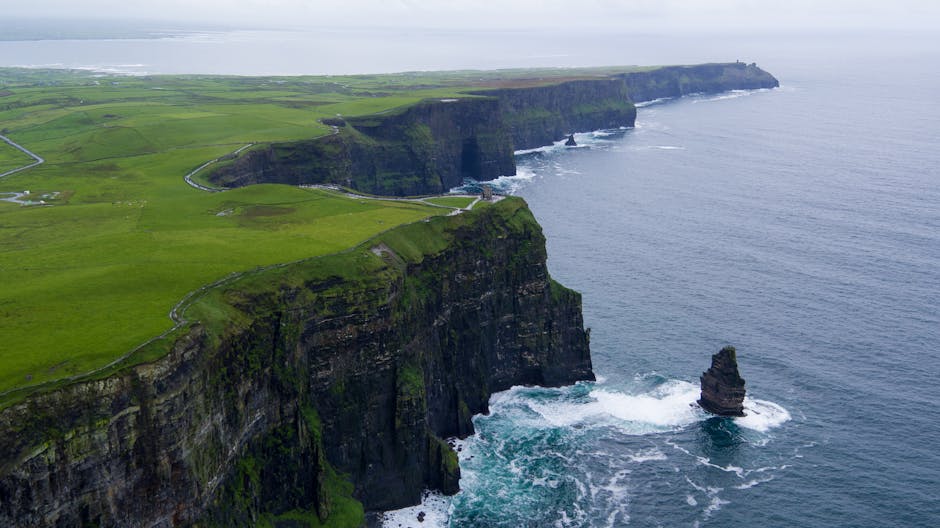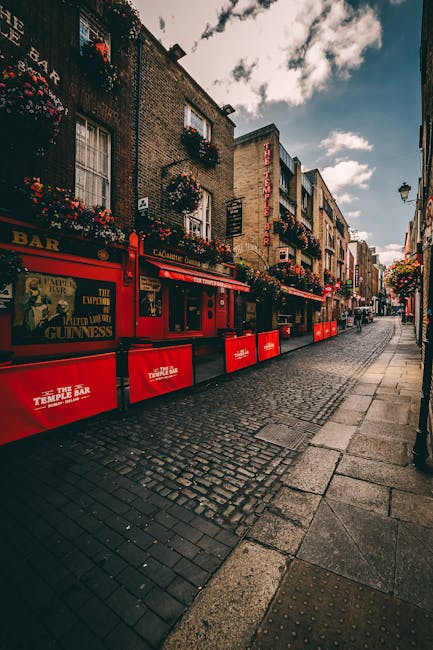


 Ireland
Ireland
Ireland is a beautiful and vibrant travel destination, offering a unique blend of culture, history, and natural beauty. From the stunning Cliffs of Moher to the rolling green hills of the Irish countryside, Ireland is a place of breathtaking landscapes and unforgettable experiences. Visitors can explore ancient castles, visit quaint villages, and sample traditional Irish cuisine. With its friendly locals, lively pubs, and vibrant music scene, Ireland is sure to provide an unforgettable experience for any traveler.
Activities: Surfing, Stand-up paddle boarding, Canoeing, Rafting, Skiing, Mountain biking, Hiking, Camping, Rock climbing, Safari
Landscapes: Islands, Beaches, Forests, Woodlands, Mountains, Rivers, Lakes
Topics: Cities, Nature, History, Festivals, Backpacking, Adventure
Is Ireland expensive?
Ireland currency
€Euro (EUR)
Weather in Ireland
The weather in Ireland is generally mild and temperate, with temperatures rarely dropping below freezing. The climate is classified as oceanic, meaning that the weather is usually quite wet and windy. Summers are generally warm and sunny, with temperatures reaching up to 20°C (68°F). Winters are cool and wet, with temperatures rarely dropping below 0°C (32°F). Rainfall is common throughout the year, but especially during the winter months.
- Yearly temperature range: 4°C - 18°C
- Monthly rainfall range: 73mm - 133mm
- Daily sunshine range: 2h - 7h
Traveling Ireland
Car Rental
Renting a car is the most popular way to get around Ireland, as it allows you to explore the country at your own pace and visit places that are off the beaten path.
Car rentalBus Tours
Bus tours are a great way to see the sights of Ireland without having to worry about driving. Most bus tours offer guided commentary and stops at popular attractions.
Train Travel
Train travel is a convenient way to get around Ireland, with regular services connecting major cities and towns. It's also a great way to take in the scenery of the Irish countryside.
Cycling
Cycling is a great way to explore Ireland, as there are plenty of scenic routes and trails to explore. It's also an eco-friendly way to get around.
Is Ireland safe?
Crime
The crime rate in Ireland is relatively low compared to other countries. The most common crimes reported are theft, burglary, and drug-related offenses. Violent crime is rare, but it does occur. In general, travelers should take the same precautions they would in any other country and be aware of their surroundings.
Travel advisory
2.5/5Ireland has a current risk level of 2.5 (out of 5). We advise: Use some caution when travelling Ireland.Last updated: Thu Mar 23 2023
Health
Vaccinations
It is recommended that travelers to Ireland be up-to-date on routine vaccinations, including measles-mumps-rubella (MMR), diphtheria-tetanus-pertussis, varicella (chickenpox), polio, and influenza.
Food and Water Safety
Tap water in Ireland is safe to drink. However, it is recommended that visitors take precautions when eating food from street vendors or restaurants.
Insects and Animals
There are no major health risks associated with insects or animals in Ireland. However, visitors should take precautions against ticks and mosquitoes.
Air Quality
Air quality in Ireland is generally good. However, visitors should be aware of the potential for air pollution in urban areas.
Medical Care
Medical care in Ireland is generally of a high standard. Visitors should ensure they have adequate travel insurance before traveling.
Ireland customs and etiquette
Be Respectful
Be mindful of local customs and traditions, and be respectful of the people and places you visit.
Be Courteous
Be courteous to locals, especially in rural areas. Avoid loud or disruptive behavior.
Be Considerate
Be considerate of the environment and leave no trace when visiting natural sites.
Be Aware of Local Laws
Be aware of local laws and regulations, including those related to alcohol consumption.
Dress Appropriately
Dress appropriately for religious sites and other places of worship.
Tipping
Tipping is not expected in Ireland, but it is appreciated if you receive good service.
TP
Copyright 2023